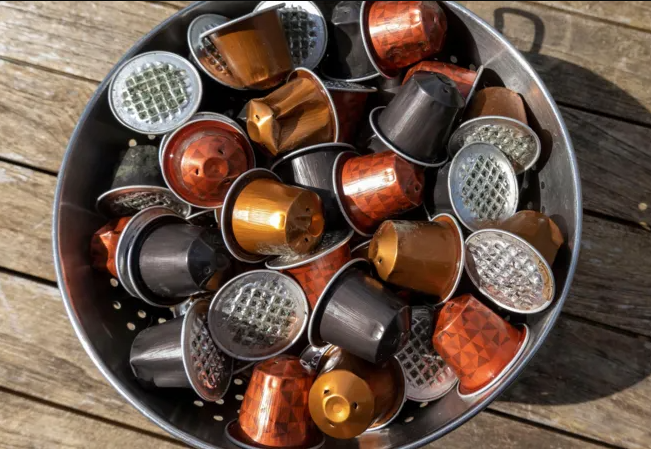

Coffee pods have become a staple in our daily routines, offering unmatched convenience and efficiency for brewing coffee. As per the reports, Oxford City Council has announced that over 2.3 million used aluminium and plastic coffee pods have been recycled. Recycling coffee pods is a significant step towards reducing the environmental impact of their production and disposal.

Impressive milestone for Oxford
Oxford Direct Services (ODS), which operates on behalf of the council, collects the pods for processing by the not-for-profit recycling service Podback. So far, around 3,500 households have signed up with this service since they partnered with ODS three years ago. Oxford City Council is the local authority for the city of Oxford in Oxfordshire, England.
This is an “impressive milestone for Oxford,” said Rick Hindley, the Executive Director of Podback. In addition to green or blue bins, coffee pods can also be placed on top of them once used, along with tea bags and hot chocolate sachets, as noted by the council. The past three years have shown how much Oxford inhabitants love to recycle their coffee cups, according to Nigel Chapman, a Cabinet Member for Citizen-Focused Services and Council Companies, in response to this trend.
Aluminium pods are recycled in Cheshire, whilst plastic pods are dealt with in East Yorkshire. These plastics and metals are made into new products like packaging, car parts and building materials. The coffee grounds go into local anaerobic digestion plants for biogas generation that can be used to enhance soil fertility.
Michelle Bradbury, Team Leader at ODS Recycling & Waste Services said: ‘The partnership with Podback allows the service to be cost neutral but improved for residents.’ Cherwe happened earlier this year.
Importance of recycling aluminium coffee pods
The coffee pod market has seen significant growth in recent years, valued at approximately $13.42 billion in 2020 and is projected to grow at a compound annual growth rate (CAGR) of 13.3 per cent, potentially exceeding $29 billion by 2027. Aluminium coffee pods, however, stand out as the most highly regarded in the industry due to their 100 per cent recyclability. The coffee industry could establish a circular economy which would minimize waste and environmental impact if there were effective collection systems for used aluminium pods.
By reclaiming materials from used pods, we can create new products and conserve resources that would otherwise be consumed in manufacturing new ones. This approach encourages eco-friendly culture change which involves people practicing sustainable life styles individually as well as business organizations adopting green habits. The simple act of recycling coffee pods goes a long way in reducing our ecological footprint thereby promoting conscious consumption of coffee.



Responses






